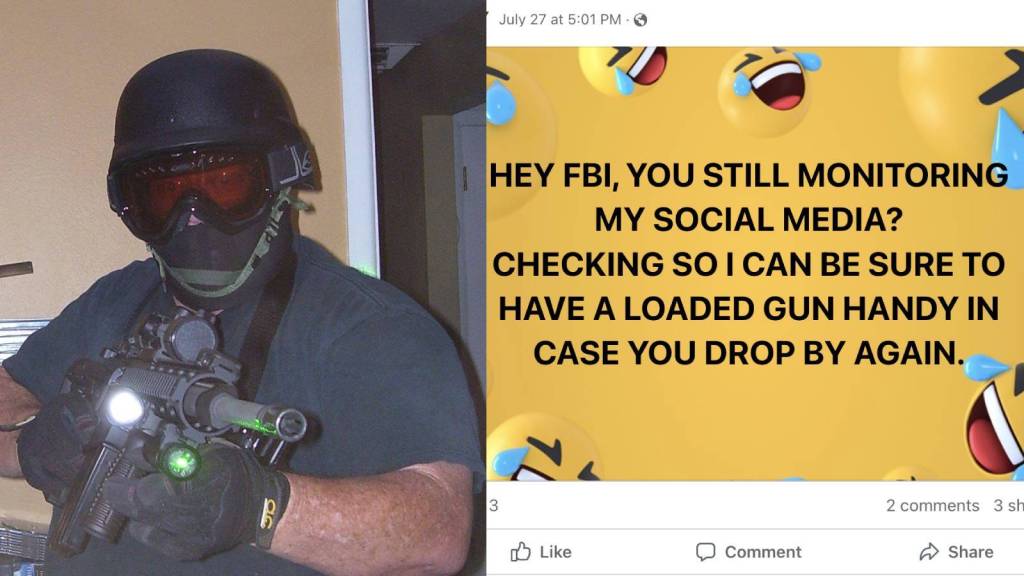Comments section tough guys and fictional sitcom characters like Ron Swanson have popularized the idea that it’s completely acceptable to shoot a drone out of the sky. As one man in California recently learned, it’s not: A judge just awarded a drone pilot $850 in a lawsuit related to the shotgunning of his custom-built drone.
Way back in November, I was contacted by a man who said his drone had just been shot while flying over his parents’ farm. Before talking on the record to the press, he wanted to get the case settled either with his neighbor or with the legal system. In late May, his case was finally finished—the first lawsuit relating to the destruction of a drone to become public.
Videos by VICE
“It didn’t occur to me to set a precedent,” Eric Joe, the pilot, told me. “I didn’t want to go down this route, I wanted to get it resolved civilly, but that didn’t work out.”
Previously: “My Neighbor Blaster My Drone With a Shotgun”
Legal experts say that shooting down a drone with a gun should technically be a federal felony offense. Because the Federal Aviation Administration has decided to consider drones “aircraft” (and has fought for that distinction in court) and has not yet created specific rules about their use, shooting at one should be a violation of federal code 18 §32, which carries a maximum sentence of 20 years in prison.
“If drones are aircraft, and subject to all of the same restrictions relating to aircraft, then they should also be afforded the exact same protection the law provides all aircraft,” Peter Sachs, a Connecticut-based attorney specializing in drone issues told me.
Thus far, the FAA has not charged anyone who has shot down a drone with violating that law, though the FAA has made it explicit that shooting at a drone is illegal.
Nonetheless, there have been a handful of drones shot down over the last couple years.
“I was flying over my parents’ walnut farm in Modesto, California, a really rural area. I was up in the air for maybe five minutes before I heard a shot,” Joe said. “According to my flight data, it wasn’t going very fast or anything, but it just flipped upside down and crashed.”
Joe says he approached his neighbor, identified in the lawsuit as Brett McBay, whose son was holding a shotgun.
“I yelled over to them and said, ‘Did you shoot that drone?’ and they said ‘Did we get it?’” Joe said. Joe said that McBay originally agreed to pay for the drone, which started an email chain between the two.
Related: This Kid Got Assaulted For Flying His Drone on a Beach
“It was nice to meet you and your son. I wish it could have been under different circumstances, but I have to give credit to the McBay school of marksmanship,” Joe wrote in an email sent in November. “Still, I’m pretty bummed that I just built this hexacopter only to have it shot down. Also, it was a little disconcerting to know that the spread of the birdshot/buckshot was in my direction.”
Joe asked for $700 to replace the broken parts—the entire rest of the email chain is worth reading:
Joe decided to pursue the case in Stanislaus County Superior Court, where a judge quickly ruled that McBay was at fault.
“The judge said it was more or less an open-and-shut case, thanks to his admission in the email chain. His first question was just ‘Why did you shoot the drone?’ [McBay] said he wanted peace and quiet in his neighborhood,” Joe told me.
McBay did not respond to Motherboard’s request for comment. An FAA spokesperson told me that it has not yet pursued any enforcement actions against people who have shot drones.
A criminal case is still pending. In the end, the judge decided that “McBay acted unreasonably in having his son shoot the drone down regardless of whether it was over his property or not.” Though it’s not necessarily precedent-setting, it’s still an important case, according to Brendan Schulman, an attorney at Kramer Levin who has more experience in drone law than anyone else in the country.
“Even though it’s from small claims court, it supports the proposition that destruction of someone’s property is not an appropriate way to respond to the presence of a drone,” Schulman told me. “Even if a drone is causing a nuisance, potentially invading privacy, creating a hazard, or violating some other law, the appropriate way to respond is to call the authorities, not to take self-help measures involving firearms. Notably, the verdict states that the discharge of the firearm was unreasonable regardless of whether the drone was being flown over the shooter’s property. I think this case is more about the response to the drone operation than it is an indication of what laws apply to the operation of the drone itself.”
So, if you’re thinking about shooting down a drone, know that, at the very least, there’s a good chance you’ll lose a hefty sum of money if you get sued.
Motherboard goes drone racing:



